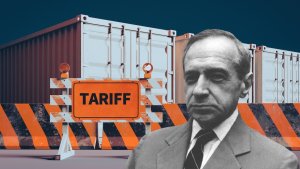The possibility, first raised by Rudolf Hilferding, of stabilizing a capitalist economy through the operations of a ‘general cartel’, leaving only social and political ‘contradictions’ to disturb the functioning of the system, gave rise to a discussion among Marxists not only on whether such a stabilization was at all possible, but also on the nature and scope of those contradictions. This discussion had been anticipated in the 1890s in the work of the Polish Marxist Ludwik Krzywicki (1859 – 1941). He put forward the idea that, in a capitalist economy stabilized in this way, a state of ‘industrial feudalism’ would prevail, in which society would become stratified into social classes without the possibility of mobility between those classes. This analysis was extended in the 1940s by Oskar Lange (1904-1965) as he attempted to make sense of the American New Deal and rediscovered in the 1950s by Tadeusz Kowalik (1926-2012). This paper explains the concept of industrial feudalism and argues that the main mechanism for such a stratification today is the unequal distribution of wealth, in the context of declining welfare provision.
Working Paper
Working Paper Series By
Download- Wp 174 Toperowski And Szymborska (pdf, 558.94 KB)


